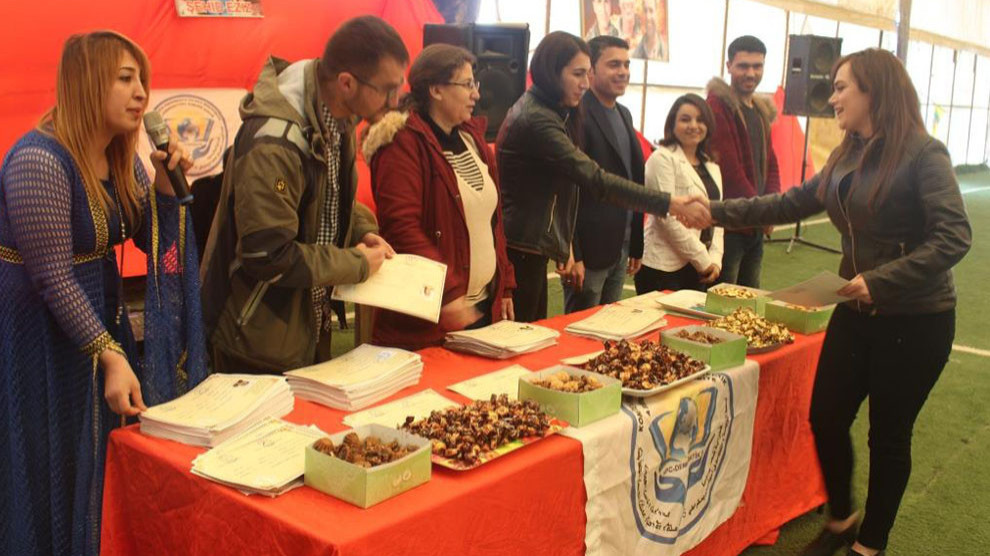550 Kurdish teachers receive diploma in Hesekê
In a festive atmosphere, the Education Committee of the Northern Syrian canton of Hesekê presented 550 new Kurdish teachers with their diplomas.
In a festive atmosphere, the Education Committee of the Northern Syrian canton of Hesekê presented 550 new Kurdish teachers with their diplomas.

In front of hundreds of guests today 550 students received their diplomas as teachers of the Kurdish language for primary and secondary education. In a festive atmosphere, the Education Committee of the Northern Syrian canton of Hesekê presented the new Kurdish teachers who successfully completed their studies at the "Şehîd Roza Cûdî" academy in Dirbêsiyê with their certificates. In addition to numerous teachers and representatives of civil society, well-known personalities from politics also took part in the ceremony.

Due to the colonial policy of the nation-states in the region, which have divided Kurdistan among themselves and pursue a policy of assimilation and repression against Kurds, Kurdish almost ended up on the list of dead languages. In Rojava, however, an about-turn is taking place.
After the revolution in Rojava and the accompanying construction of a common democratic life of the different identities of the region, the education councils have started to implement a concept of mother-tongue education in 2015. Kurdish language textbooks are now available from first to twelfth grade. A priority goal at the universities in Rojava is the use of the Kurdish language in science.
Until a few years ago, Kurdish hardly had the opportunity to develop as a written language in the region. More recently, however, historical opportunities for the development of the Kurdish language have arisen first in Southern Kurdistan and then in Rojava and Northern Syria. The Kurmanci dialect, which is used by the majority of the Kurdish population, has systematically become an educational language for the first time.
